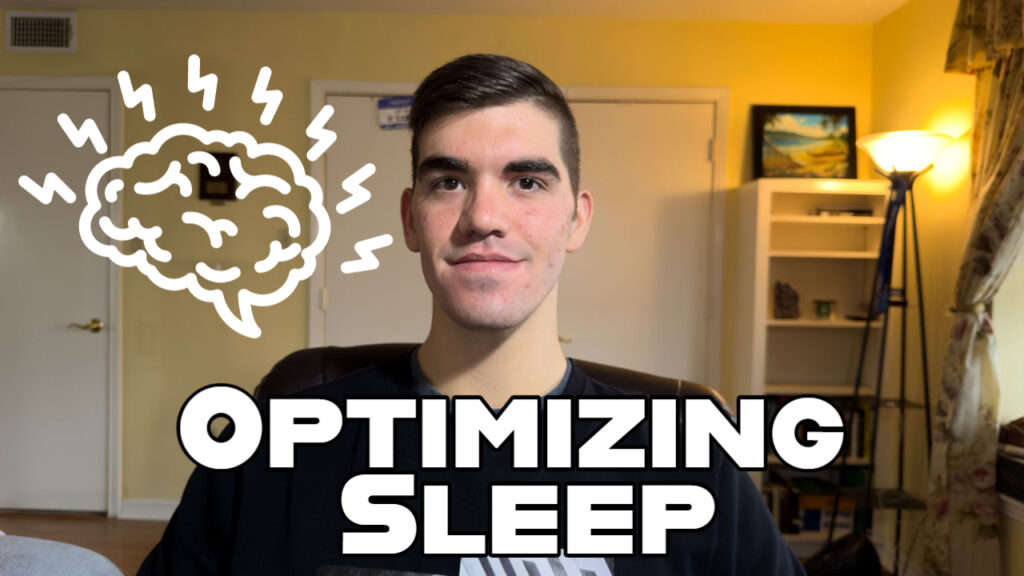Why is Sleep Important?
Sleep is our natural superpower. It heals us, reduces stress, increases brain capacity, and without it, we do not do well. This article is designed to give you a stepping-off point to improve the quality of your own sleep.
-
- Repair damage to your body and cells.
- Cortisol decreases and growth hormone increases during sleep. This combination along with a proper diet, allows your tissues to maintain and even build past previous levels.
- Not enough sleep reduces the growth hormone released from your pituitary gland causing tissue damage to remain unrepaired.
- Memory
- Sleep is crucial for brain restructuring to remember what we learn
- Slow-wave sleep and Rapid Eye Movement are crucial for this memory formation. This is why we should aim for 7-9 hours of minimally interrupted sleep.
- Quality Sleep Has an Antidepressant Effect
- Depression may be associated with insomnia and sleep deprivation. Therefore, getting quality sleep may improve mental health.
- Repair damage to your body and cells.
Wake up and go to sleep at the same time every day.
- I personally go to sleep at 9 pm and wake up at 5 am daily, however, the amount of sleep a person needs depends on their age, sex, and lifestyle.
- The range of 7 to 9 hours is the optimal range to recover from workouts, relieve stress, and maintain a healthy brain.
- I recommend people schedule their sleep into their calendars. “Winging” sleep will lead to oversleeping, undersleeping, depression, and burnout.
- Maintaining quality sleep hygiene the majority of the time is essential for good physical and mental health.
- A 30-minute variance day-to-day is fine as long as you stick to the regime most days of the week.
- Do not panic if you have insomnia before bed. The worst that can happen is you’ll be groggy the next day.
- Personally, I find it is best to stay calm, get out of bed, and read a physical book or low-light Kindle to wind down until you feel drowsy.
View Sunlight After Waking
- After waking up, get sunlight in your eyes as soon as possible to set your circadian rhythm.
- Under a sun-soaked sky, you can prepare for the day on the porch, go for a walk, or have breakfast in a sunroom.
Exercise during the day
- I find that physical activity helps my body fully exert itself during the day and I sleep better at night on days I train.
- Try to not exercise too close to sleep because exercise activates your sympathetic nervous system making you feel more awake.
Avoid napping
- Keep your naps under 30-60 minutes to reduce insomnia-like symptoms.
- Personally, I take 15-minute nonsleep deep rests where I lay in bed and rest my eyes, focusing on diaphragmatic breathing through my belly.
Do not take stimulants in the late afternoon
- According to the FDA, caffeine’s half-life is roughly 5 hours. Therefore, it is best not to consume caffeine for about 10 hours before sleep.
- Nicotine-containing cigarettes should be avoided as their use has been shown to reduce smokers’ sleep quality.
Reduce light exposure before you go to sleep.
- Darkness signals your brain the sun is setting and it is time to release the sleep hormone melatonin.
- Turn off bright overhead lamps and opt for warmer lamps and limit phone and computer use 2 hours before bed to allow for melatonin release.
Sleep Environment
- The optimal sleeping temperature is between 60-70° F.
- High temperatures are associated with worse sleep and higher wakefulness.
- The room should have the least amount of light possible.
- The only light used should be to walk to the bathroom if needed safely.
Takeaways
- Wakeup and Sleep at the same time every night for 7-9 hours
- View sunlight when you first wake.
- Avoid caffeine or other stimulants later in the day.
- Workout everyday
- Sleep in a cool dark area.
MY KEY LINKS:
- 💡 YouTube – https://www.youtube.com/@cartergansky
- 📸 Instagram – https://www.instagram.com/carter.r.gansky/
- 🐦 Twitter – https://twitter.com/CarterGansky
- 🌲 Linktree – https://linktr.ee/cartergansky
- 🔊 Discord – https://discord.gg/sQxvHH78Ga
WHO AM I:
I’m Carter Gansky, a fitness and health advocate and a Doctor of Physical Therapy in training. I explore the strategies and tools that help us live motivating, healthier, and more fulfilling lives.
GET IN TOUCH:
🧠 contactcartergansky@gmail.com
Any and all feedback on my content or ideas for future content is welcome!
References
A Raj, M Ruder, H M Rus, L Gahan, B O’Mullane, S Danoff-Burg, R Raymann, 1214 Higher Bedroom Temperature Associated With Poorer Sleep: Data From Over 3.75 Million Nights, Sleep, Volume 43, Issue Supplement_1, April 2020, Page A464, https://doi.org/10.1093/sleep/zsaa056.1208



